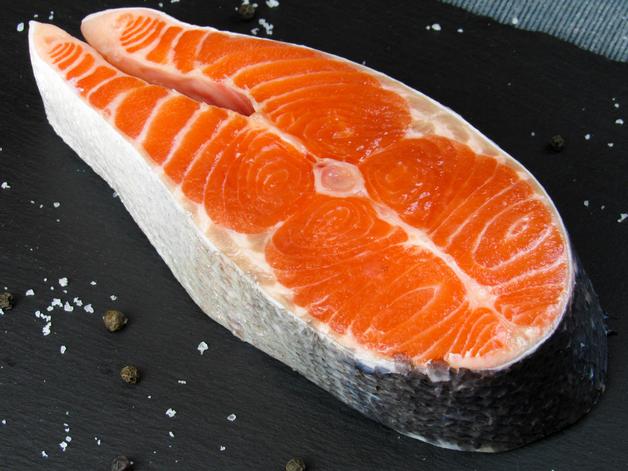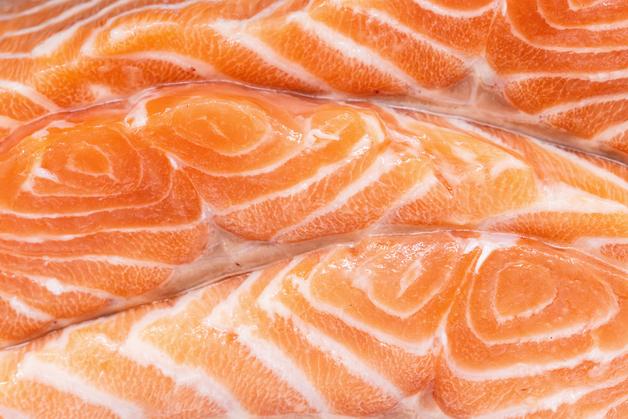Craving the silky texture and briny depth of smoked salmon pregnancy ? The dilemma strikes quickly: your palate yearns for nuanced flavors, but every supermarket shelf and family meal comes with a cloud of uncertainty. Is smoked salmon pregnancy compatible with safety, nutrition, and peace of mind, or does it pose unwelcome risks? Parents, this journey through advice, evidence, and alternatives is designed to dissolve confusion and bring clarity—one question at a time. Together, we’ll unravel the medical realities, the nutritional wonders, and the everyday solutions to confidently make choices, nourish your growing family, and savor your meals.
Smoked Salmon Pregnancy: Untangling Safety and Potential Hazards
Picture a beautifully arranged plate of smoked fish. Before pregnancy, it might have spelled celebration; smoked salmon pregnancy, however, comes with new questions. What’s lurking beneath the glossy surface? Central to the discussion are food safety, microbiological risk, and label jargon.
Let’s break it down:
- Raw or undercooked salmon (think sushi, tartare, or sashimi): This state leaves you vulnerable to bacteria such as Listeria monocytogenes, a microorganism notorious for triggering severe infections in pregnancy, as well as Salmonella and occasional Anisakis parasites.
- Cold-smoked fish: Despite a seductive aroma, this variant remains essentially uncooked, with smoking at temperatures often below 30°C. The result? Pathogens can survive, including Listeria—making cold-smoked salmon a risk, regardless of brand or price.
- Hot-smoked salmon: At over 60°C, the landscape shifts dramatically. This heat level is sufficient to destroy common foodborne pathogens, rendering hot-smoked salmon a much safer, though not entirely risk-free, option.
- Canned or pasteurized salmon: Subjected to rigorous heat treatments, these forms arrive on your plate already cooked and, importantly, ready to eat.
In one sentence: raw and cold-smoked salmon are off-limits during pregnancy, even with a “fancy” label, while hot-smoked, cooked, or canned varieties are, when handled correctly, far more reassuring. Should worries about listeriosis—a rare, insidious infection—determine every choice? Not necessarily, but adopting preventive habits makes the difference between confidence and concern.
Nutritional Insights: The Dual Role of Smoked Salmon Pregnancy
Why does smoked salmon pregnancy seem so tempting? Beyond cravings, a careful look at its nutritional profile reveals a symphony of health benefits. Salmon is celebrated for its omega-3 fatty acids (mainly DHA and EPA), powerhouses that construct your baby’s brain and retina. But there’s more:
- High-quality protein strengthens maternal and fetal tissues.
- Vitamin D—often tricky to obtain elsewhere—supports robust bone development.
- B12 and other B vitamins enhance energy metabolism and support nerves.
- Phosphorus, potassium, selenium add their own dynamic contributions, shielding cells and enabling whole-body growth.
Yet smoked salmon pregnancy is far from a simple “superfood story.” Potential pitfalls lurk behind the label:
- Mercury and cadmium, although present in lower concentrations than in large predatory fish like tuna, still accumulate. The general recommendation is to limit consumption to two servings weekly (each serving: 50–70g).
- Sodium overload: Commercially processed smoked fish is often saturated in salt, increasing risks of water retention and high blood pressure for pregnant individuals.
Wondering how to reconcile benefits and worries? Here’s a practical list:
- Opt for cooked salmon for all the omega-3s, minus the microbiological stress.
- Rotate choices: try pasteurized smoked trout, canned sardines, or mackerel (all offering similar healthy fats and minerals). Plant-based DHA sources like flaxseed, chia, or walnuts deserve a place at the table.
- Scan every label: “hot-smoked,” “cooked,” or “pasteurized” guarantees the safest nutritional payout. When in doubt, choose the simpler, fully cooked option.
- For plant-based parents, a vegan DHA supplement recommended by your healthcare provider fills any remaining gap.
A simple summary? Smoked salmon pregnancy invites you to savor the positives, provided you stay attentive to both preparation and quantity.
Medical Risks: Listeria, Parasites, Sodium, and Heavy Metals
Time for a closer look at the science. Listeria monocytogenes isn’t a household name, but among smoked salmon pregnancy risks, it looms large. Rare but unmatched in its danger during pregnancy, this bacterium can trigger outcomes no parent ever wants to contemplate—miscarriage, stillbirth, or serious newborn illness. How does it spread? The culprits: raw and cold-smoked salmon, particularly when the refrigeration chain breaks (even for a few hours).
And the story doesn’t end with bacteria:
- Anisakis parasites (mostly in improperly frozen fish) cause allergic or digestive responses, further highlighting the advantage of heat.
- Salt content sneaks up fast—some fillets contain several days’ worth of sodium in a single portion.
- Industrial smoked fish may also harbor additives, raising concerns for parents who seek pure, clean nutrition.
- Heavy metals, though more commonly a woe with giant fish like swordfish, can be detected in salmon—so rotation and moderation remain key.
Any symptoms—persistent fever, abdominal pain, digestive changes—warrant prompt action. Never second-guess whether you “should” call a provider. In smoked salmon pregnancy, speed matters; early intervention can make all the difference.
Evidence-Based Guidelines: Official Recommendations for Smoked Salmon Pregnancy
Confused by shifting internet posts or supermarket labels? Medical authorities stand united: avoid smoked salmon pregnancy products unless they’re cooked, pasteurized, or hot-smoked above 60°C. Additional advice includes:
- Cold-smoked and raw salmon must be frozen at -20°C for a minimum of 24 hours to inactivate parasites—yet this leaves Listeria untouched.
- Always choose hot-smoked, fully cooked, or canned fish.
- After opening, consume the product within 24–48 hours and maintain refrigeration below 4°C.
- Prioritize traceable options: clear sourcing, straightforward labeling, and see-through supply chains.
- For any doubt or situation not described, turn to your healthcare provider—the best source for personalized, science-based advice.
Is it possible to marry taste, safety, and maternal well-being? Absolutely—armed with the facts, you can confidently sidestep smoked salmon pregnancy pitfalls.
Everyday Tips: Enjoying Salmon Safely While Pregnant
Stuck between cravings and the rulebook? Loved recipes—smoked salmon bagels, open-faced tartines, quiches—can return to your kitchen, with smart adjustments. Heating is your secret ally. Baking, grilling, or combining with gratin dishes suffices to bring food past the vital 60°C line and neutralize pathogens.
Strategies to transform your smoked salmon pregnancy meals:
- Always heat smoked salmon thoroughly, including when topping cold-served dishes.
- Clean all surfaces, knives, and boards right away after raw fish contact.
- Never store at room temperature, even temporarily.
- Keep serving size moderate (1–2 portions a week), making room for variety.
- Combine salmon with vegetables or whole grains for a nutrition-rich, balanced meal.
No need to say goodbye to flavor—just make your oven or stove your best friend.
Rethinking Smoked Salmon: Nutritious and Safe Alternatives
Eager to diversify? The food landscape is vast. Whether you miss the distinct taste, are looking to branch out, or adhere to dietary restrictions, alternatives exist:
- Steamed, grilled, or oven-baked salmon preserves all the good fats, safely.
- Canned sardines and mackerel provide not only DHA but also calcium and vitamin B12—nutritional goldmines.
- Explore homemade fish soups, sardine-topped toasts, or mackerel rillettes, all cooked to perfection.
- Prefer plant-based? Flax, walnuts, chia, and canola oil back you up with plant-derived omega-3s.
- For vegetarians, consider plant-based DHA supplements (with a professional green light), ensuring no one misses out.
Replacing smoked salmon pregnancy products with one of these alternatives keeps meals delicious, varied, and reassuringly safe.
If Mistakes Happen: What If You Ate Unsafe Smoked Salmon During Pregnancy?
Did smoked salmon end up on your plate before reading the labels? If so, it’s important not to panic. Take stock:
- Watch for symptoms: fever, chills, muscle pain, digestive upset, or headache.
- At the first sign of illness, consult your healthcare provider—fast treatment changes outcomes.
- Even symptom-free? Mention the exposure; sometimes simple monitoring or extra blood work is recommended.
Future safety is always within reach: informed choices, attentive label reading, and honest conversations with medical professionals are your safety net.
Myths, Facts, and Unmissable Details for Parents
Misconceptions around smoked salmon pregnancy abound. Does “ready to eat” mean risk-free? Not always. Only hot-smoked, canned, or fully cooked products guarantee safety. Are additives and salt inherently toxic? Not usually, but cumulative sodium can be a concern when consumed in excess. Wild-caught or farmed? Each is generally safe when fully cooked, though wild salmon from reputable waters is sometimes preferred for lower contaminant levels.
Essentially, avoiding raw and cold-smoked fish, rotating sources, and sticking to safe prep methods transform the risks of smoked salmon pregnancy into manageable, even enjoyable, nutrition.
Key Takeaways
- Smoked salmon pregnancy involves real considerations: cold-smoked and raw varieties carry a listeria risk, making them unsafe for expecting parents.
- Hot-smoked, cooked, pasteurized, or canned salmon offer safe, satisfying alternatives—packed with protein and omega-3 fatty acids.
- Rotate your choices among diverse fish and plant-based foods to sustain optimal nutrition and limit unwanted exposure to metals and sodium.
- Immediate consultation is advised for unexpected symptoms after consuming questionable seafood.
- Parental choices feel weighty, but you are never without resources—your healthcare provider is a reliable partner on this path. For ongoing support, free health questionnaires, and trustworthy, evidence-based advice, download the Heloa app.
Every meal can be transformed into a moment of nourishment and reassurance. Informed, intentional choices offer both you and your baby the best foundation for a thriving start.
Questions Parents Ask
Can you eat smoked salmon in sushi rolls when pregnant?
Pregnancy often brings cravings for sushi, but the presence of smoked salmon in these dishes peut soulever quelques questions légitimes. Sushi rolls with smoked salmon are only safe if the fish has been fully cooked or pasteurized. Unfortunately, most sushi uses raw or cold-smoked fish, which could contain bacteria or parasites. To enjoy sushi flavors without souci, préférez les options végétariennes ou à base de poisson bien cuit, et n’hésitez pas à demander conseil à votre professionnel de santé si le doute persiste.
Is farmed or wild smoked salmon safer during pregnancy?
Parents may wonder if the source of the salmon—farmed or wild—changes the safety profile. Both farmed and wild salmon can be safe when thoroughly cooked, but wild salmon, when coming from reputable sources, is sometimes highlighted for having potentially lower contaminant levels. However, the most important point is always how the salmon is prepared, not its origin. Assurez-vous simplement de bien cuire le poisson ou de choisir des produits pasteurisés, quel que soit leur type, pour limiter tout risque.
Can smoked salmon trigger allergies during pregnancy?
Pregnancy can sometimes modifier la sensibilité de l’organisme, et certaines femmes découvrent de nouvelles réactions à des aliments qu’elles consommaient auparavant sans souci. Smoked salmon, like all fish, has the potential to provoke allergic reactions, especially if there is a family history of seafood allergies or if une allergie préexistante était connue. Si vous remarquez des démangeaisons, des rougeurs, ou tout autre signe inhabituel après avoir mangé du saumon fumé, il importe de consulter rapidement votre professionnel de santé. Rassurez-vous, ces situations sont rares et il existe toujours des alternatives si besoin.

Further reading:









